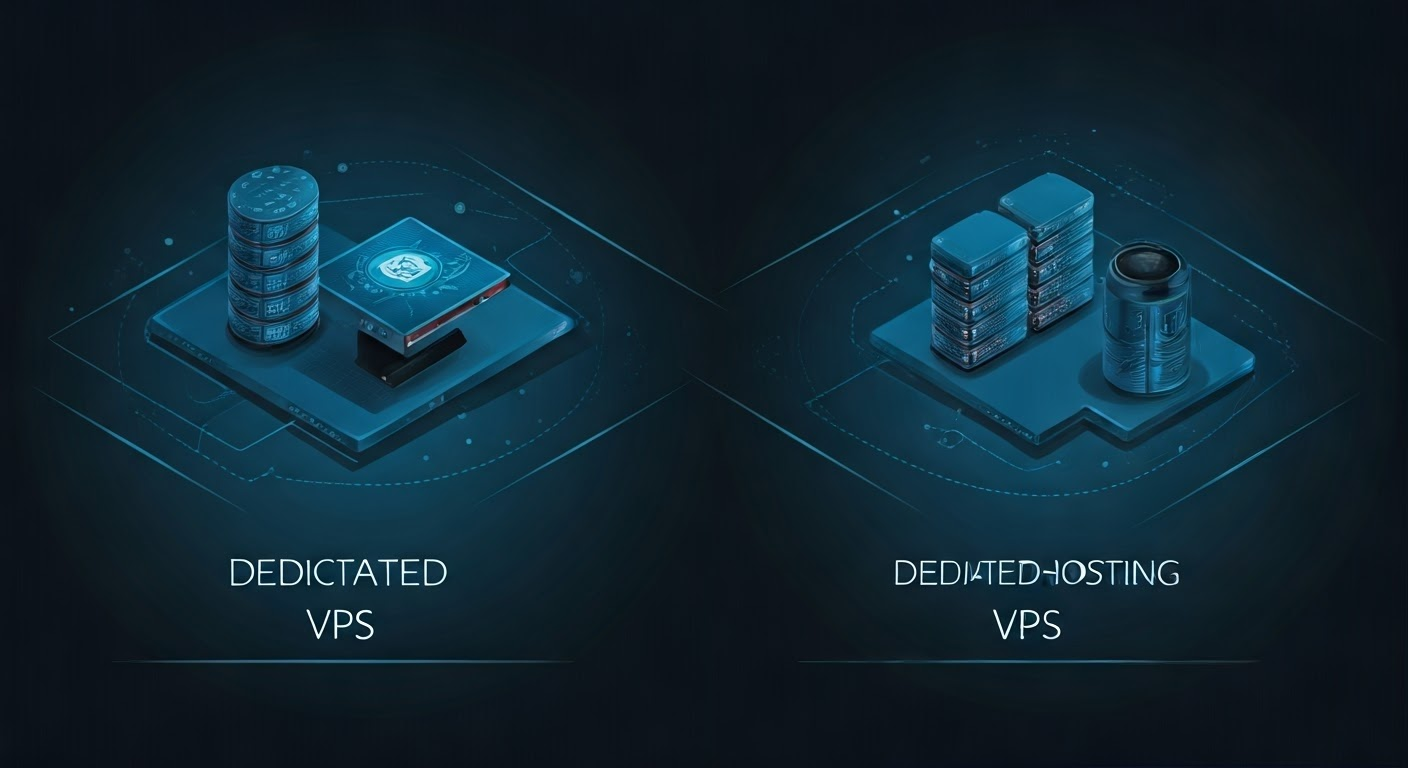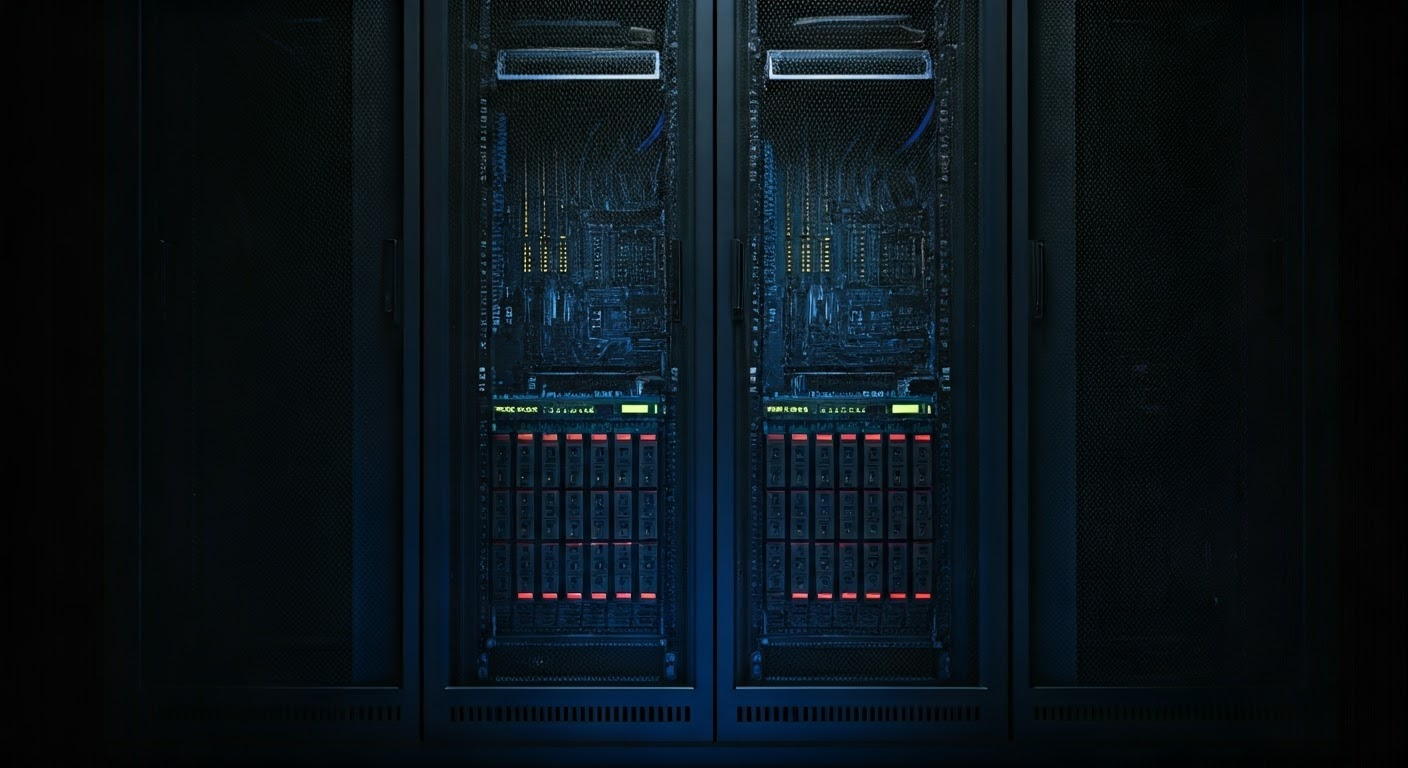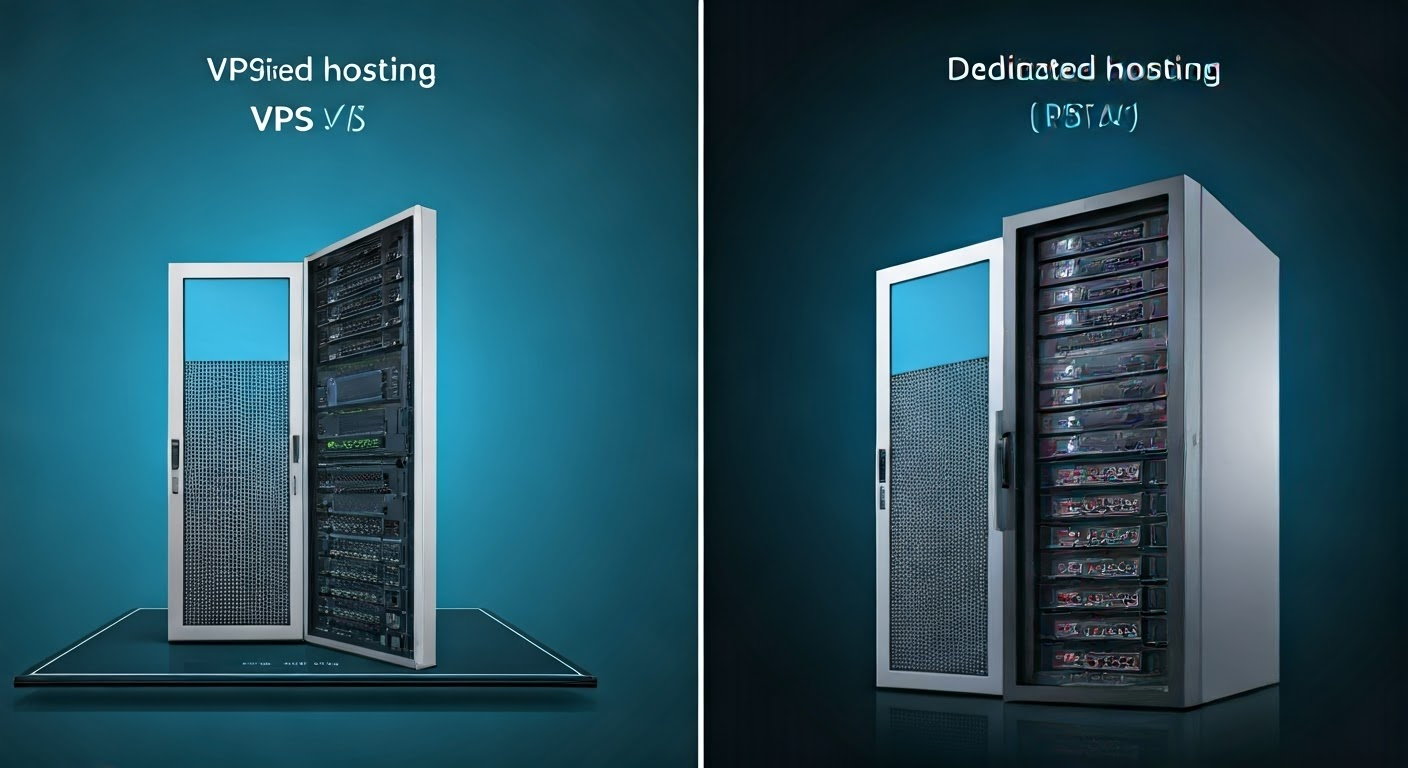
Key Highlights
- VPS hosting is cheap and strong, which makes it good for businesses with average traffic.
- Dedicated hosting offers the best resources and control, but it costs more.
- Your choice between VPS and dedicated hosting should rely on your website’s traffic, the resources you need, and your budget.
- Consider important things like security, growth options, and how much you can customize when making your choice.
- Switching to a new hosting plan needs careful thought and proper action.
Introduction
Choosing the best web hosting is very important if you have a website. If shared hosting does not meet your needs anymore, you might want to think about different types of web hosting like VPS hosting or dedicated hosting. These options can provide you with faster loading speeds. It’s important to know the differences between them so you can choose what is best for you. In this guide, we will discuss VPS hosting and dedicated hosting. We will look at their features, benefits, downsides, and the best use cases for each. This will help you make a smart choice with confidence.
Understanding VPS Hosting

VPS hosting is a smart option that falls between a shared hosting plan and dedicated hosting. With VPS hosting, your website runs on a physical server. This server is shared with other users, but you get dedicated resources. It’s like having your own apartment in a big building. Think of the server as a large pie. With VPS hosting, you get your own slice of that pie. This setup helps your website avoid sharing resources with other websites on the same server.
This method helps your website run well, even when other websites get busy. VPS hosting uses virtualization technology. This keeps your space apart from others. It also gives you better privacy and security.
The Basics of VPS Hosting
A virtual private server (VPS) uses a special technology called virtualization to create multiple virtual server environments. This technology takes a strong physical server and divides it into several smaller sections. Think of it like taking a big office and splitting it into several individual workspaces. Each workspace has its own resources. A VPS works like its own virtual server. It has its own operating system, applications, and resources.
This part makes sure your website runs smoothly. It won’t be affected by what other sites do on the same physical hardware. You can restart, set up, and manage your VPS easily without bothering others nearby.
Key Benefits and Limitations
VPS hosting is a smart choice. It gives a nice balance between price and performance. Here are the main benefits:
- Dedicated Resources: You receive guaranteed resources such as RAM, CPU cores, and storage. This makes your website run smoothly.
- Cost-Effectiveness: VPS hosting is affordable and offers dedicated resources. This is a good option for businesses that want to save money.
- Scalability: You can upgrade your resources easily when your website traffic increases. This maintains steady performance as your business grows.
However, there are some limits to consider:
- Shared Resources: A VPS uses a physical server shared with other users, even if you have some dedicated resources. This sharing may sometimes slow down performance.
- Technical Expertise: To manage a VPS, you may need some technical skills. This is especially true for setting it up and keeping the server working well.
Exploring Dedicated Hosting

Dedicated hosting gives your website a private space just for itself, especially if it involves sensitive customer data. You have full control of a physical server, so you don’t share any resources. This setup results in better performance and security. You can also customize your hosting to fit your needs. It is perfect for websites that need a lot of support.
Imagine if you had a complete data center just for your website. You can decide how to set up the hardware. You can choose the software you want to use. You can also decide how to keep everything safe.
What Makes Dedicated Hosting Unique?
A dedicated server is special because it gives you full control over a physical machine and its hardware configurations. It’s like owning your own house. You have the keys. You make the rules, and you enjoy all the benefits. This kind of ownership allows you to adjust the server to meet your website’s specific needs.
With a dedicated server, all resources are yours. You can pick the operating system you want and adjust the hardware to match your needs. This strong level of control makes dedicated hosting great for important websites, heavy applications, and businesses that want top security and performance.
Pros and Cons of Choosing Dedicated Hosting
Dedicated hosting has many great benefits:
- Fast Performance: You will enjoy fast website speeds. It can support many visitors without slowing down.
- Strong Security: It offers a safe place. You will be completely separated from other users, which lowers security risks.
- Customization Options: You can change your server to fit your needs. This makes it work better for different apps or software.
But think about these points too:
- Higher Price: Dedicated hosting is more expensive than shared or VPS hosting. You pay extra because you have full access to all the resources.
- Technical Skills Needed: Running a dedicated server usually requires more technical skills. This means you need to manage the server and fix any problems that may arise.
Comparing VPS and Dedicated Hosting

Now that we know the benefits of VPS and dedicated hosting, let’s see how they are different.
Both choices offer dedicated resources. VPS hosting lets you use a virtual space that is on a shared server. On the other hand, dedicated hosting gives you an entire physical server. This choice changes the performance, security, cost, and how easy it is to manage.
Performance and Security Differences
Dedicated hosting is the best choice for great performance. With dedicated hosting, you get an entire physical server just for you. This setup helps your website to load faster. It can manage a lot of traffic without issues. Therefore, dedicated hosting is ideal for websites that always need high performance.
VPS hosting provides dedicated resources for your website. However, it can have some problems. If other users on the shared server are busy, your website may slow down. A good VPS hosting company uses strong virtualization technology. This helps reduce resource issues and keeps most websites running well.
Security is a key benefit of dedicated hosting. In this type of setup, your server is only yours. This gives you complete control over your security choices. Because of this, there is less risk of issues caused by other users on a shared server.
Cost Analysis and Value for Money
Cost is a key factor when choosing between VPS hosting and dedicated hosting. VPS hosting often costs less, and understanding the key differences can help businesses choose accordingly. It is a good choice for businesses that want budget-friendly options that match their unique needs while still performing well. In contrast, dedicated hosting offers better performance and improved security. However, it comes at a higher price because it provides exclusive resource allocation.
Let’s visualize the cost implications:
| Feature | VPS Hosting | Dedicated Hosting |
| Cost | Affordable | Expensive |
| Value for Money | High for moderate needs | High for demanding needs |
Suitability for Different Business Sizes
The best option for you between VPS hosting and dedicated hosting depends on the size and needs of your business. If you run a small or medium-sized business with normal website traffic, VPS hosting is often a smart choice. It gives you good performance and can grow as your business needs grow. Also, it doesn’t have to be very expensive.
Larger businesses often go for dedicated hosting. They usually do this when they have important websites, a lot of traffic, and heavy applications. Dedicated hosting gives them great performance, strong security, and the chance to customize the server for their specific needs.
Making the Right Choice for Your Needs
Choosing the right hosting option relies on what your website needs. It also depends on how much you can spend and your skills.
Think carefully about important things. These are how much traffic you expect, what features you need, how safe your site must be, and if it can grow in the future. Try not to pay a lot for extra features that you do not need. Also, avoid limiting your website’s potential by picking a hosting plan that is too weak.
Assessing Your Website’s Requirements
Before you decide, see what your website really needs. Look at your usual web traffic and how much you expect it to grow. Consider any features that use a lot of resources. If you think you will have high traffic often, run complex apps, or need a lot of disk space, you might need dedicated hosting.
Think about how many CPU cores you need. You should also think about how much RAM your website needs to work well. Check if you need any special software or root access to your server for better performance.
Considerations for Scalability and Growth
Think about how your website can grow in the future. If you believe many more people will visit, or if you want to add features that require lots of help, keep scalability in mind when choosing the amount of RAM you need. VPS hosting often makes it easy to get more resources. Just make sure your provider has simple options to scale up.
Dedicated hosting is powerful, but you might need to upgrade servers in the future. This can be challenging and expensive. Cloud hosting is another option. It provides flexible and on-demand growth. We can talk about that option later.
Transitioning to Your New Hosting Plan
Once you pick between VPS and dedicated hosting, you should plan your move well. This will help you switch with minimal downtime.
- Don’t forget to back up your website data.
- Configure your DNS settings.
- Get assistance from your new hosting provider to make the transfer easy.
Steps for a Smooth Migration
Migrating your website to a new hosting plan can be easy. Just stick to a simple plan for a smooth move. First, back up your whole website. This means saving your databases, files, and emails. This step will keep your data safe if anything goes wrong during the transition.
Next, choose a good hosting provider that fits your new hosting plan. Find providers that give strong support during migration. Once you have your new hosting environment ready, move your website files and databases with care. Finally, check your website to make sure everything is working well.
Tips for Managing Your Hosting Environment
Managing your hosting environment is important to keep your website running well and safe. If you have a VPS or a dedicated plan, spend some time learning about the server management tools from your hosting provider. These tools help you check server resources, set security settings, and manage user accounts.
- Update your server software regularly.
- This includes your operating system, web server software, and any apps you have.
- These updates fix security problems and improve performance.
- If you have root access to your server, be careful when changing important system files.
Conclusion
In summary, choosing between VPS and Dedicated Hosting depends on what you need. VPS is a cost-effective choice that performs well. However, Dedicated Hosting gives you strong security and many options for customization. Think about what your website needs, your plans for growth, and your goals for the future. This will help you make the right decision. It’s also important to create a clear plan for transferring and managing things smoothly. Understanding the differences in performance, security, and costs will guide you to the best hosting for your business. If you need help with this important choice, feel free to ask for expert advice.
Frequently Asked Questions
What Are the Main Differences Between VPS and Dedicated Hosting?
VPS hosting is when you use a virtual private server. It gives you dedicated resources, but you share the environment with other users. On the other hand, dedicated server hosting gives you an entire server just for yourself. With this choice, you have complete control over all the server resources and how to use them.
How Do I Know If VPS or Dedicated Hosting Is Right for Me?
The best option depends on your needs. Think about your website traffic, the features that require more resources, your budget, and your tech skills. Talk to a hosting provider to go over your needs. They can help you get advice that suits your situation.
Can I Upgrade from VPS to Dedicated Hosting Easily?
Most hosting companies make it easy to change from VPS instances to dedicated resources. They take care of the technical details for you. However, it is smart to back up your data first. If you have any questions, you should reach out to customer support.